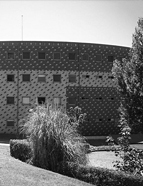

Finally, a reference to Luís Carlos Amaral, who was attracted very early on to the teaching of D. José Ángel García de Cortázar (U. of Cantabria, Santander) in the context of medieval ruralities regarded as forms of «social organisation of space», a conceptualisation / methodology that had already shaped his Master's thesis (on the management of the landed heritage of S. Salvador de Grijó in the 14th century, 1987, published in 1994) to reach their peak in his doctoral thesis (Formação e desenvolvimento do domínio da diocese de Braga no período da Reconquista [Formation and development of the dominion of the diocese of Braga in the Reconquista period], [IX-1137], 2008), focusing on a much earlier period, a trend that has manifested itself in the School in recent years. In co-authorship with Mário Barroca, he recently produced a biography of the infanta and queen Maria Teresa for the Círculo de Leitores collection on queen-consorts.
A synthesis of the area of Modern History from the 1970s onwards is more complex, perhaps since the thematic and research fields are less consolidated.
Dean of the area, in 1972 Luís de Oliveira Ramos authored the first doctoral thesis in Contemporary History at the Portuguese universities, a biography of Cardinal Saraiva (Friar Francisco de S. Luís), which essentially addresses the first phase of the ecclesiastic's life and his dimension as a scholar and historian. At the FL/UP he marked the teaching of the History of Portuguese Expansion (where he routinely quoted Cortesão, Magalhães Godinho and M. Nunes Dias, when this was not yet common practice), of Modern and Contemporary History ( addressing the independence of the USA and the French Revolution; with references in J. Godechot [1907-1989] and R. R. Palmer [1909-2002]), for example), of Modern Portuguese History and Institutional and Political History (19th-20th centuries) (R. Rémond [1918-2007] his main reference). In the 1990s he coordinated a History of Porto (1994), with almost full collaboration from the School, somehow replacing the History of the city of Porto (dir. D. Peres and A. Cruz, 1960s); more recently he wrote a biography of Queen Mary I (in the afore-mentioned collection); and Vol. VIII (1750-1810) of the afore- mentioned New History of Portugal under his coordination, by Joel Serrão and Oliveira Marques is - endlessly?- in press.
